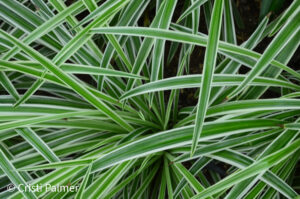
Research Summary Abstract
From 2001 to 2020, numerous products representing 40 active ingredients were evaluated in greenhouse and field trials as soil drench, soil incorporation, foliar,in-furrow, drip irrigation or tuber soak applications against several Fusarium species causing rots (crown, stem and tuber rots) and wilt on environmental horticulture crops, and wilt and root rot on vegetables. Fusarium species tested included: F. avenaceum, F. commune, F. oxysporum, F. solani and F. sp. Most trials were conducted on F. oxysporum on larkspur, liriope, lisianthus and watermelon. Although there were insufficient data for definitive conclusions, several relatively new products showed promising, though inconsistent, efficacy comparable to the standards. These include Astun (isofetamid), BAS 750 (mefentriconazole), Picatina (pydiflumetofen), Heritage (azoxystrobin), Compass (trifloxystrobin), Hurricane (fludioxonil+mefenoxam), Insignia (pyraclostrobin), Insimmo (acibenzolar), MBI-121, Orkestra (fluxapyroxad + pyraclostrobin), SP2169, Tourney (metconazole) and Trinity (triticonazole)., Broadform (fluopyram + trifloxystrobin), BW240/RootShield Plus (Trichoderma harzianum & T. virens), (BWI161N), CG100 (caprylic acid), Mural, Pageant (boscalid+pyraclostrobin), Palladium (cyprodinil+fludioxonil), SP2550, SP2770 and TCX2020 provided no to mediocre efficacy. Postiva (pydiflumetofen + difenoconazole) provided excellent efficacy on F. oxysporum on various environmental horticultural crops in greenhouse experiments. Proline (prothioconazole) provided consistently good control of F. oxysporum in watermelon trials. The established standards 3336, Medallion and Terraguard generally provided inconsistent efficacy.


